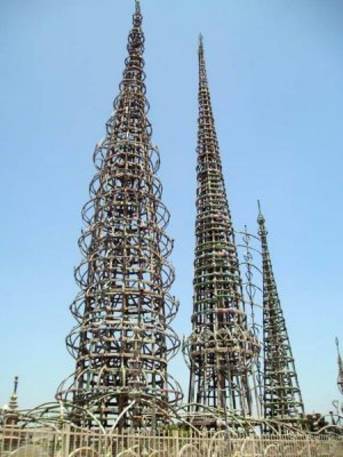


This is the core of I Build the Tower a documentary written, directed, and produced by Edward Landler and one of Rodia’s nephews, Brad Byer. The film tells the exceptional story of Sam, his life and his work - the man and the artist.
“There are three kinds of people in this world,” the shaky voice of toothless Rodia accompanies black and white images of his past, “the rich, the bourgeois, and the poor. But the poor aren’t free, and women aren’t free, they are ruled by their bosses.” All throughout the film “Uncle Sam” (that’s how many of his friends liked to call him) delivers numerous wise quotes making him not a simple immigrant nor an artist, but mostly a thinker, a sort of philosopher on the verge of madness and genius.
Sam has something to say for everybody, from Christopher Columbus, to many American Presidents, the rich and the poor, and even himself. “I was one of the worst men in America,” he chuckles.
But this “bad” man was loved by many that from the peace and quiet of their backyards observed him climb on his towers, and when the local authorities wanted to destroy them they all fought for the life of the so-called Watts Towers. Now they have become an important cultural center and the symbol of freedom and of the ideals of the American dream. They stand colorful in the suburban desert of Los Angeles, similar in shape and colors to the work of one of the world’s greatest architects, Antonio Gaudì.
Rodia didn’t know the Spanish master, but the influences seem reminiscent of the spectacular Park Guell.
Many have suggested that the towers become a symbol of Los Angeles just as the Golden Gate is the symbol of San Francisco. But would Sam want to be a symbol for the United States? - The land where he was brought by his parents when still too young to decide? These questions remain unanswered.
Source URL: http://test.iitaly.org/magazine/focus/art-culture/article/great-italian-americans-sam-rodia
Links
[1] http://test.iitaly.org/files/torri1190606190jpg